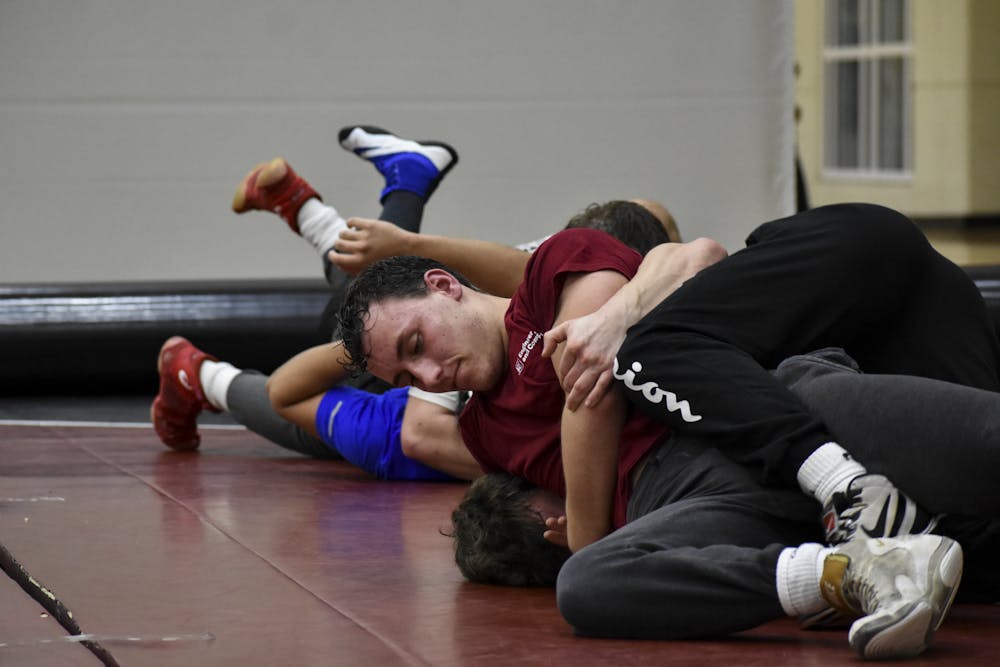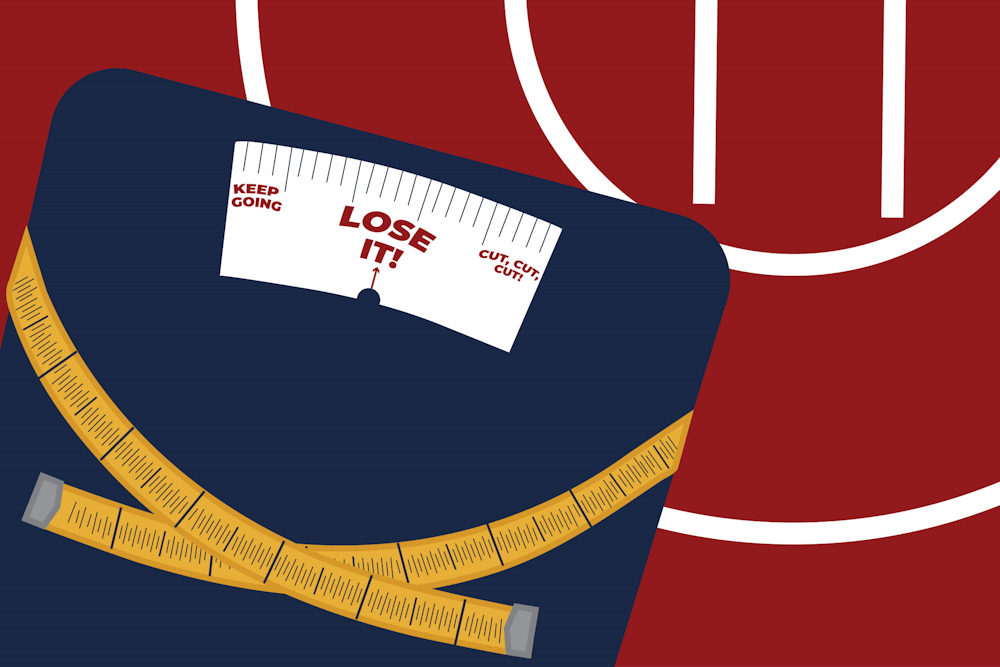Wrestling is an age-old sport, though the implementation of weight classes is much newer, bringing with it a controversial set of rules.
Meeting weight in a designated weight class can prove physically and mentally challenging. If a wrestler comes just an ounce over their intended weight, they cannot compete. Many wrestlers spend the days before an event losing any weight they can, largely in the form of water weight.
“It’s a very fluid thing, where you just have to bundle up and basically just squeeze out all the water weight,” Zachary St. Thomas, a fourth-year computer science student and president of the Gamecock Wrestling Club, said. “And that kind of makes it much more doable than it might seem at first, but it’s definitely not permanent weight. It’s not very sustainable in the long term.”
This fast-track method of losing weight generates a negative response from the body, according to Teresa Moore, a clinical associate professor of exercise science at USC and experienced bodybuilder and powerlifter.
“A lot of the quick weight loss, extreme diets, you’re gonna lose a lot of water weight, not as much body fat,” Moore said. “It looks like you’ve lost 10 or 15 pounds when all you’ve really done is dehydrate, and you’ve depleted your body of a valuable energy source you need for that competition.”
Cutting weight drains wrestlers' energy, making it harder for them to focus, sleep and compete at their best, according to St. Thomas.
"Weight cutting can absolutely effect everything ... You get more tired more easily," St. Thomas said. "You're not as well conditioned as you otherwise might have been, lose strength even, as well. Sleep can get very difficult."

Cap Holley, a second-year political science student and secretary of the Gamecock Wrestling Club, said wrestlers' bodies are put under enormous amounts of stress on the days leading up to a competition, and they often are forced to ignore their body's signals.
“It’s really draining. You’re definitely not getting nearly enough nutrients that you need, that your body needs, especially if you’re wrestling and working out at the time,” Holley said.
In addition to the physical toll, there is a substantial mental toll on the body that comes from preparing for a match by rapidly cutting weight.
"It's just like mentally, you can't think straight," Holley said. "You can definitely tell there's adverse side effects to it in school and stuff."
Not only does cutting weight affect someone's short-term physical and mental health, it also creates the potential for further health complications if the cutting is done in a careless manner.
“I have seen people end up in the hospital ... from dehydration, from hypoglycemia, electrolyte imbalance," Moore said. "It is one of the dangerous possibilities with some of the extreme dieting that goes on, and there’s healthier ways to diet than that.”
Cutting weight longterm in a healthier manner can take a tremendous amount of mental fortitude, but with the right exercise plan and diet strategy, some of the more severe effects of rapid weight loss can be avoided.
“What I found over the years is that maintaining a healthy diet with a moderate diet restriction and working, balancing that out with the proper training, you have to do that for a much longer period of time and have a gradual weight loss (to) end up with a healthier athlete and much better performance,” Moore said.

